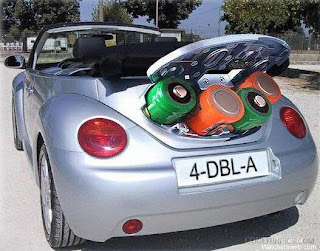 BEIJING — Senior Chinese officials outlined on Friday how they aimed to turn their country into the world’s largest producer of electric cars, including a focus on consumer choice rather than corporate subsidies.
BEIJING — Senior Chinese officials outlined on Friday how they aimed to turn their country into the world’s largest producer of electric cars, including a focus on consumer choice rather than corporate subsidies.
Speaking at a conference at the government’s prestigious Diaoyutai guesthouse here, the officials acknowledged that their efforts faced challenges in terms of the cost and safety of electric cars. They promised a nationwide effort by manufacturers, universities, research institutes and government agencies to overcome these obstacles.
Wan Gang, a former Audi engineer in Germany who is now China’s minister of science and technology, portrayed the country’s electric car initiative as central to China’s international competitiveness, but said that there were environmental goals as well.
“We need to be sustainable in different sectors, particularly in the auto sector,” he said.
Zhang Shaochun, a vice minister of finance, said that the government wanted to let the market determine which electric vehicle models would become popular. So while the government is providing some research subsidies, the main step will be to provide very large subsidies for buyers of electric cars — already up to 60,000 yuan, ($8,800), for purchases by taxi fleets and local government agencies.
“The fiscal subsidy gives voting rights to the consumer,” he said.
China also has a 10 billion yuan ($1.46 billion) program to help the industry with automotive innovation.
In the United States, the government is providing $25 billion to help cover Detroit’s research costs in the coming years.
Mr. Zhang said that with a greater emphasis on incentives for electric car buyers, “we will cut back on the discretionary power of government agencies — otherwise, the companies will just fight for subsidies.”
Chinese and foreign automakers have embarked on a number of demonstration projects for electric cars, with Nissan announcing one Friday in Wuhan, a city in central China. But very few electric cars are on the road in China yet.
While electric cars are rapidly improving, they remain roughly twice as expensive as similarly sized gasoline-powered cars, which also provide greater range, higher top speeds and better records for reliability. Mr. Wan, the minister of science and technology, raised another concern Friday when he noted that the industry had to look at safety as it sought to make electric cars ever lighter.
Electric car makers may find it easier to gain a following in the Chinese market than in other countries. First-time buyers in China are less accustomed to the power of gasoline-powered cars; most commutes are short and slow because of traffic jams; and Chinese law makes it hard for consumers to sue automakers for safety problems.
Miao Wei, the vice minister for industry and information technology, said at the conference that automotive sales and production set records last month; the previous records for both were set in March of last year.
Sales and production were running at an annualized rate of about 11 million vehicles last month, Mr. Miao said, indicating the previous records were narrowly beaten. In the United States last month, sales were running at an annualized rate of 10 million.
On Thursday, the China Association of Automobile Manufacturers said passenger car sales rose 10 percent in March from a year earlier. The group said sales of cars, minivans and multipurpose vehicles rose to a record 772,400. Including trucks and buses, vehicle sales were up 5 percent, to 1.11 million units.
Yale Zhang, a China specialist at CSM Worldwide, a vehicle market forecasting service, said that sales of small cars and small minibuses had surged because of a tax cut on vehicles with engines of less than 1.6 liters and because of a $730 subsidy introduced last month for car buyers in rural areas.
Mr. Miao, a former chairman of Dongfeng Motor, one of China’s biggest automakers, said that the ever-growing fleet of China posed three problems: air pollution, rising consumption of imported oil and traffic congestion.
“If these three bottlenecks cannot be addressed, the Chinese auto industry cannot grow sustainably,” he said.
Alternative-energy vehicles “are the only way out to address these challenges,” he said, without explaining how a shift from gasoline-powered cars to electric cars would address the chronic traffic jams in Chinese cities.(NYT)

No comments:
Post a Comment